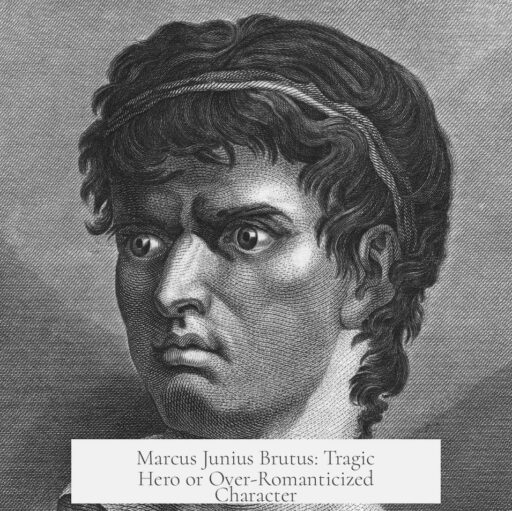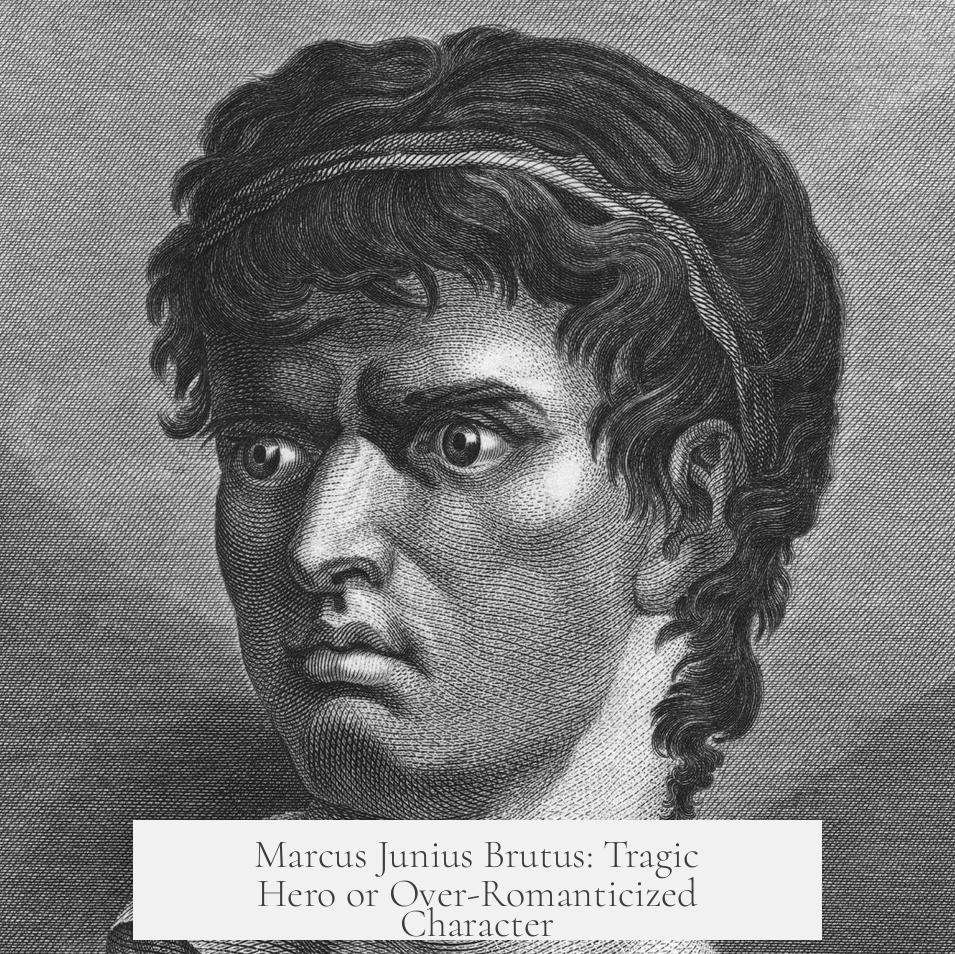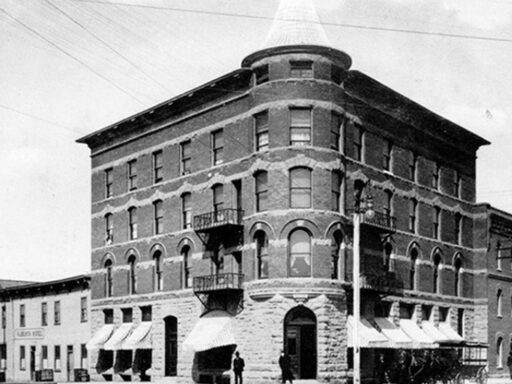Marcus Junius Brutus represents a complex figure caught between personal loyalty and political conviction, whose story is both tragic and subject to romanticization over centuries. The question of whether his life and choices are best seen as a tragic downfall or an embellished legend is nuanced and requires careful examination of his motivations, relationships, and historical context.
Brutus and Julius Caesar shared a congenial relationship, grounded in mutual interests such as philosophy, literature, and culture. Caesar treated Brutus well, offering potential avenues for wealth, status, and influential roles. However, Brutus chose to participate in Caesar’s assassination, forsaking these benefits. This decision points to motivations beyond mere ambition; his loyalty to the Roman Republic and its ideals appears paramount, suggesting he acted as a patriot determined to prevent tyranny rather than a schemer chasing power.
Brutus held a profound respect for the Republic, arguably mirroring his famed ancestor, Lucius Junius Brutus, who helped overthrow Rome’s monarchy. This legacy exerted significant pressure, compelling him to act against Caesar, who was on the cusp of assuming near-absolute power after an impending military campaign against Parthia. Had Caesar succeeded, his position would have solidified, potentially establishing him as a de facto emperor.
The conspirators, including Brutus, failed to plan effectively for the political vacuum following Caesar’s death. Their aim was simply to kill the dictator, not to manage the aftermath. This lack of foresight plunged Rome into chaos and civil war, undermining any hopes of restoring stability or the Republic’s old order. As Cicero criticized, their plot had the courage of men but the understanding of boys.
Interestingly, Brutus might have gained more power by supporting Caesar. With no biological heir, Brutus stood close to becoming a second-in-command figure. Instead, his assassination attempt left him allied with Cassius, whose ambition was arguably more self-serving. Historical sources indicate that Brutus’s gains from the assassination would have been limited. Serving as co-consul with Cassius hardly matched the potential rewards from Caesar’s favor, highlighting the depth of Brutus’s commitment to republic ideals.
Brutus’s background was privileged. He belonged to a wealthy and respected family, engaged in philosophical interests and financial activities such as money-lending, which included controversial practices like charging high-interest rates. This paints a picture of a man driven by personal passions and practical concerns rather than idealism alone. His life included personal tragedies, such as losing his father young and fighting against him during the Roman civil war, adding layers to his complex character.
Confusion over his identity is common, often conflating him with Decimus Junius Brutus, a relative who remained loyal to Caesar. Historical accounts and Shakespearean portrayals tend to blend traits from both men, further romanticizing Marcus Brutus. Literature and drama have transformed his image into a symbol of tragic nobility, underscoring the difficulty in separating fact from fiction.
Despite the romantic portrayals, it is important to view Brutus as a politician motivated by conflicting interests—loyalty to his friend Caesar, commitment to republican ideals, and personal ambition. He appears susceptible to influence and possibly naive about the consequences of assassination. His failure to foresee the chaos after Caesar’s death reveals a lack of political pragmatism.
Some voices suggest Brutus showed no remorse for killing Caesar, whom he labeled a tyrant, and reject the rumor that Brutus was Caesar’s illegitimate son, clarifying it as impossible given their ages. Others propose that Brutus and Caesar were not as close as often claimed, indicating more political distancing than personal affection.
Ultimately, the tragic nature of Brutus’s story lies in his internal conflict and the catastrophic consequences of his decisions. He is a patriot caught between love for his adoptive father and devotion to the Republic, attempting to prevent its collapse but inadvertently hastening further strife. His figure embodies the broader tension of late Republican Rome—a society struggling with the transition from republic to imperial rule.
- Brutus’s motivations stem from a strong republican ideal rather than personal ambition.
- The assassination lacked a solid plan for political stability afterward, leading to civil unrest.
- Brutus risked forfeiting substantial future gains by opposing a powerful Caesar.
- His family legacy and personal tragedies shaped his sense of duty and honor.
- The story of Brutus is heavily romanticized by history and literature, complicating objective assessment.
Marcus Junius Brutus: A Tragic Story or Over-Romanticized?
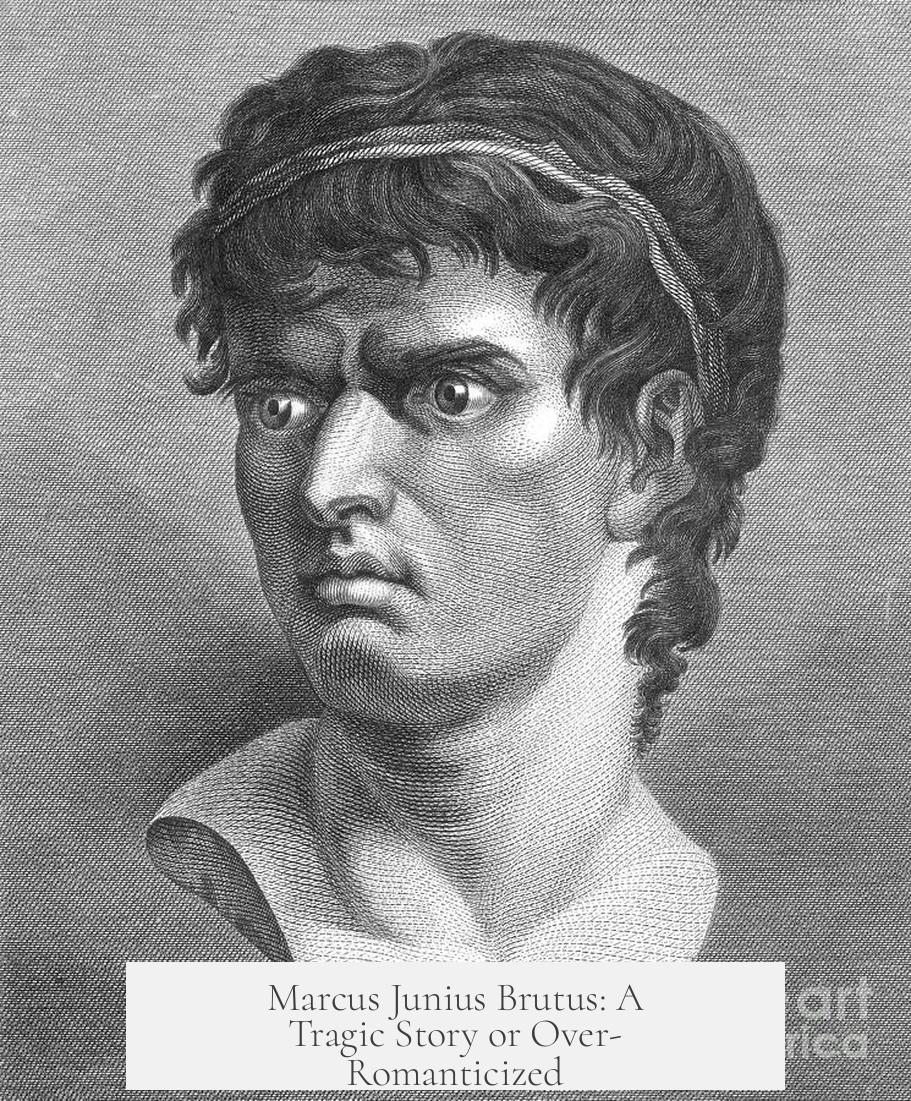
Marcus Junius Brutus, historically known as one of Julius Caesar’s assassins, embodies a tale tangled between tragedy and romantic myth. Was he a selfless patriot driven to save the Republic, or an idealistic politician swept away by ambition and poor judgment? The answer, as it often is with history, is complex and layered.
Let’s unpack this thorny figure and see where truth lies beneath the layers of time, romance, and political drama.
The Unlikely Friendship: Brutus and Caesar
Contrary to popular imagery of hatred and betrayal, Brutus and Caesar actually shared a congenial relationship. Both were cultured men with interests in philosophy and letters—more alike than different. While Antony was more of a rugged player in Caesar’s inner circle, Brutus connected intellectually.
So why kill a friend, a benefactor who could have handed Brutus wealth, status, and power?
This question cuts to the heart of his story. Tossing aside the future rewards Caesar could bestow was no petty decision. It suggests deep, possibly painful convictions shaped Brutus’s choice rather than shallow ambition.
Republic or Revenge? Brutus’s Motivation
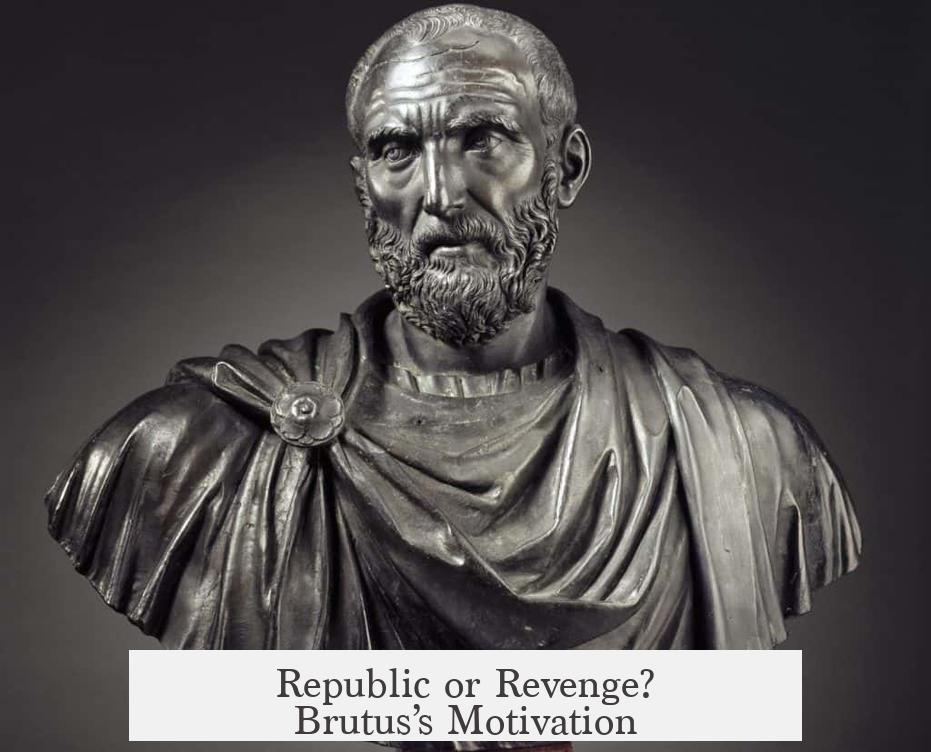
Was Brutus driven by loyalty to the Republic rather than personal ambition?
Historical sources depict him as a strong republican at heart—perhaps even too strong. He cherished Rome’s old system so much that the rise of a dictator, especially one so absolute as Caesar, felt like a death knell for liberty.
Many believe Brutus acted out of a genuine, if tragically misguided, hope to slay what he saw as a tyrant and restore freedom to Rome.
Not a power-hungry schemer, but a man torn between friendship and principle.
When Planning Goes Wrong: The Aftermath of Assassination
But here’s the rub. Brutus and his fellow conspirators planned only Caesar’s death—nothing beyond that. They neglected the aftermath.
Cicero famously criticized them, saying “the conspiracy was planned with the courage of men, but with the understanding of boys.”
The result? Instead of peace and restored Republic, Rome tumbled into chaos and civil war, far worse than before.
It’s a dramatic reminder: action without foresight can doom even the noblest causes.
Lost Opportunities: Brutus’s Alternative Paths
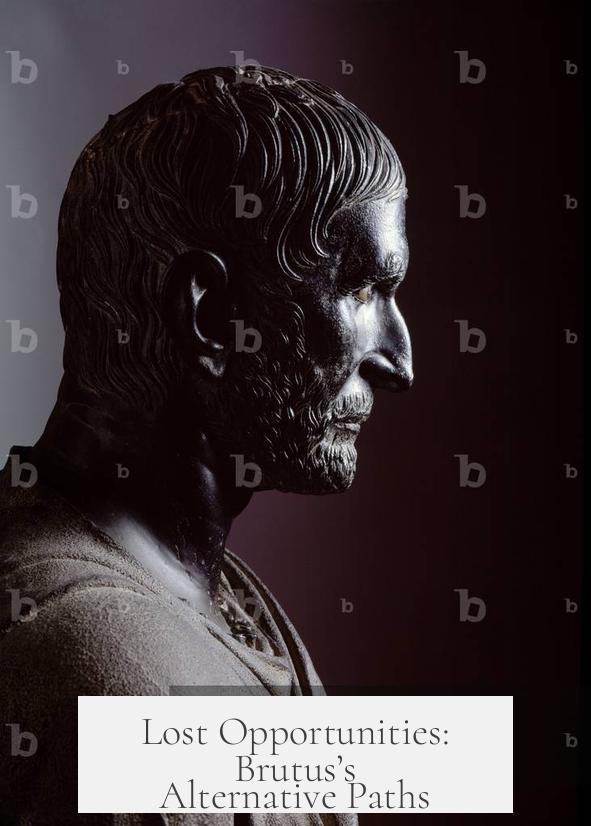
Consider this: if Brutus sought power, he had golden chances by staying loyal to Caesar.
- Caesar was about to embark on a campaign against Parthia—a victory there would cement his deification.
- Since Caesar had no direct heir, Brutus could have been second in line, potentially achieving great civil status.
- Warning Caesar of Cassius’ plots could have earned him rare trust and rewards.
Instead, by siding with the assassins, Brutus sacrificed these opportunities. Was this self-sacrifice? Or miscalculation? Probably a bit of both.
Brutus’s Gains: Hardly a Winning Bet
Even if the conspiracy succeeded flawlessly, what was the prize for Brutus? At best, a co-consulship alongside Cassius—the true mastermind whose reputation was more ruthless.
Why murder your friend just to share rule with an arch-traitor? The answer likely lies not in ambition for power, but loyalty to an abstract ideal: the Republic.
Or so Brutus might have thought.
The Tragic Patriot: Personal Losses and Internal Struggles
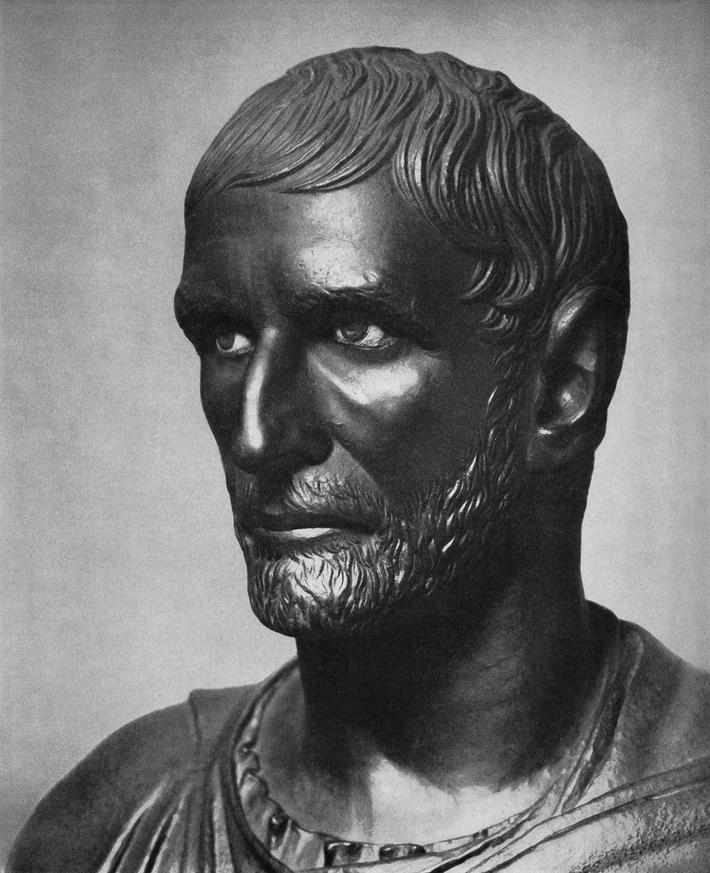
Brutus’s background tells us much about his complexity.
He was born into an ultra-wealthy family, a lineage drenched in Roman history and prestige. One ancestor famously ended the Roman monarchy by assassinating the last king, a legacy that weighed heavily on Brutus.
Raised without a father, including childhood losses and the irony of fighting on the side responsible for his father’s death, Brutus’s life was peppered with tragedy.
He also indulged in money-lending at exorbitant rates—up to 98% interest! Hardly the saintly figure often portrayed.
His passions of philosophy clashed with his less savory activities, revealing a man of contradictions.
Figurative Figurehead or True Architect?
Historians suggest Brutus might have been a politician pulled into assassination as a symbolic figurehead.
The name “Brutus” commanded weight—it had revolutionary history and moral cachet.
His co-conspirators, the more forceful Cassius and Decimus Brutus, shaped the plot at the operational level. Marcus might have been swept along by momentum rather than truly leading.
The Shadow of Romanticization
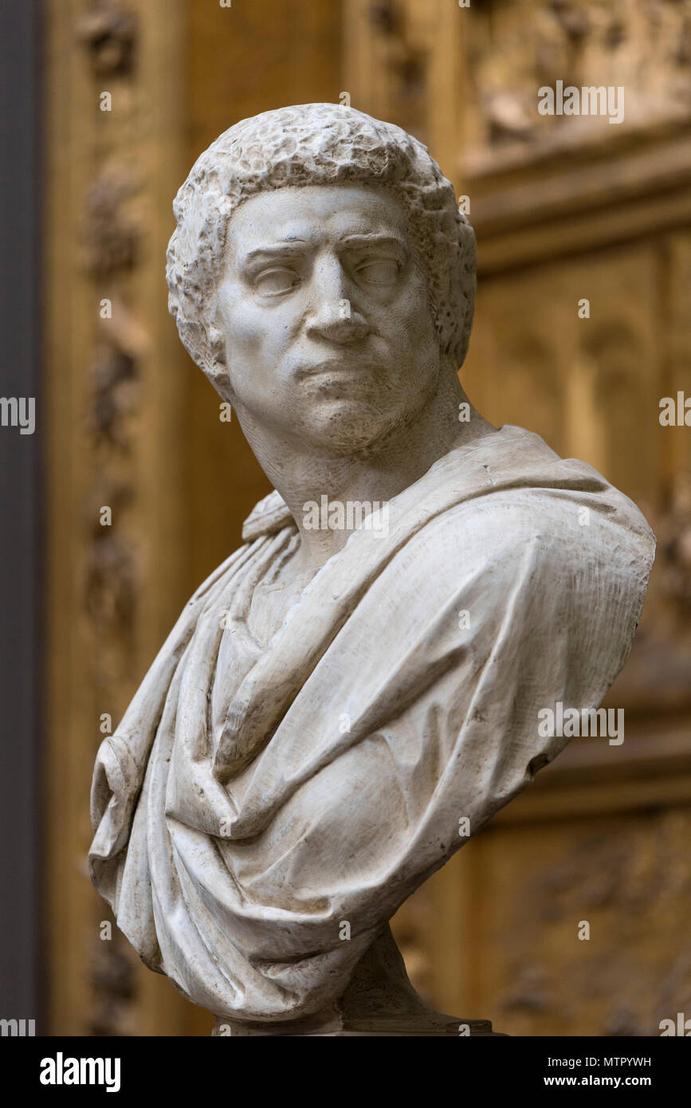
Romance and tragedy thrive in stories of betrayal and idealism. Shakespeare’s famous portrayal immortalized Brutus as the noble, conflicted hero. Poets and playwrights sharpened this image, making it resonate emotionally.
However, this artistic lens tends to gloss over his political pragmatism and self-interest. Was he really the pure martyr for liberty or just an ambitious man who lost his bet?
Probably both.
Complex Motivations: Morality Versus Realpolitik
Brutus’s story shows clear inner conflict.
He likely wrestled with personal loyalty and moral ideals, but also with Rome’s brutal political reality—a world where power was survival.
He bet on the losing side. His morality, though genuine, failed to translate into effective politics.
He may have been too easily influenced, struggling with naive idealism in a cutthroat age.
The Rumors and Realities
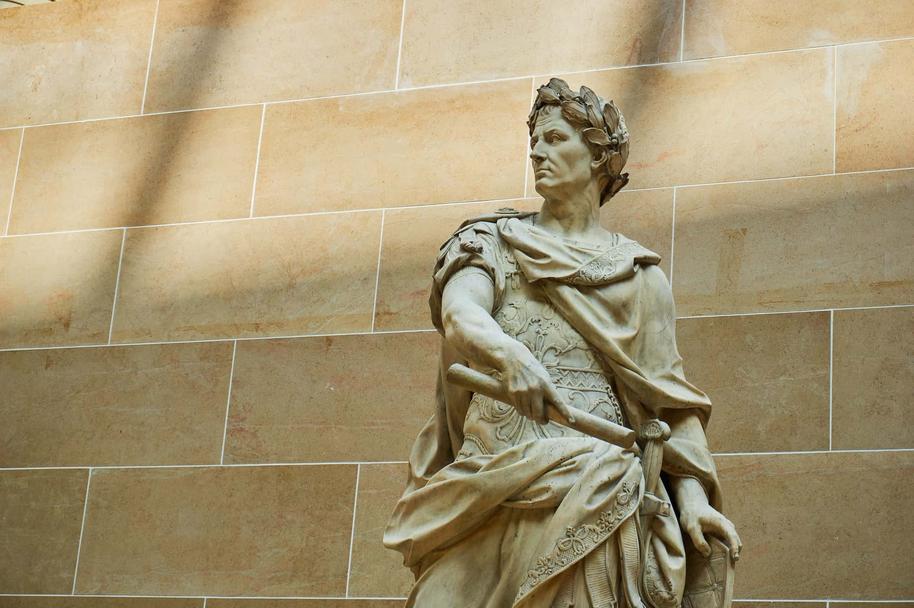
The rumor that Brutus was Caesar’s illegitimate son—a titillating notion—is just bad history. Caesar was thirteen when Brutus was born, making that impossible.
Moreover, Brutus showed no remorse after the killing. To him, Caesar wasn’t a friend but a tyrant who had to be stopped for Rome’s good.
But not everyone agrees on how close they truly were. Some argue the affection was one-sided, with Caesar fond while Brutus remained more reserved.
Modern Portrayals: A Balanced View
For those wanting a measured picture of Brutus, Colleen McCullough’s Masters of Rome series offers a solid interpretation. Though historical fiction, it leans on credible sources and depicts Brutus as a man full of contradictions and challenges.
He was neither a perfect patriot nor a ruthless self-seeker, but a human caught in one of history’s most dramatic crossroads.
What Can We Learn from Brutus’s Story?
- Complex motives drive historic actors. Rarely is history black and white. Brutus embodied contradictions—friend yet assassin, idealist yet usurer.
- Romanticizing simplifies nuance. While theatre and poetry enrich culture, they can obscure the complicated realities of personalities and politics.
- Tragedy often arises from good intentions mixed with poor planning. Brutus’s failure to anticipate consequences speaks to the need for both courage and foresight.
- Family legacy shapes decisions. Brutus’s ancestral shadow drove him to extremes to live up to a past he felt compelled to honor, illustrating how history can weigh on personal choices.
- The slippery slope of loyalty amid power struggles. Balancing personal loyalty with political ideals is complex, often forcing impossible choices.
So, Is Brutus a Tragic Hero or Over-Romanticized Figure?
Marcus Junius Brutus perfectly fits the mold of a tragic hero—deeply flawed, driven by principles, yet ultimately flawed by human fallibility.
His story carries lessons beyond ancient Rome: integrity without pragmatism can doom even the best causes; and history often remembers those who fail as much as the victors.
Was Brutus a patriot trying to save Rome or a naive politician caught in a game too large for him? Perhaps the truth lies somewhere in between—and that very uncertainty is what keeps us fascinated by him, 2,000 years later.
What do you think? Is Brutus a misunderstood champion of liberty or just a tragic victim of bad timing and misplaced trust?
